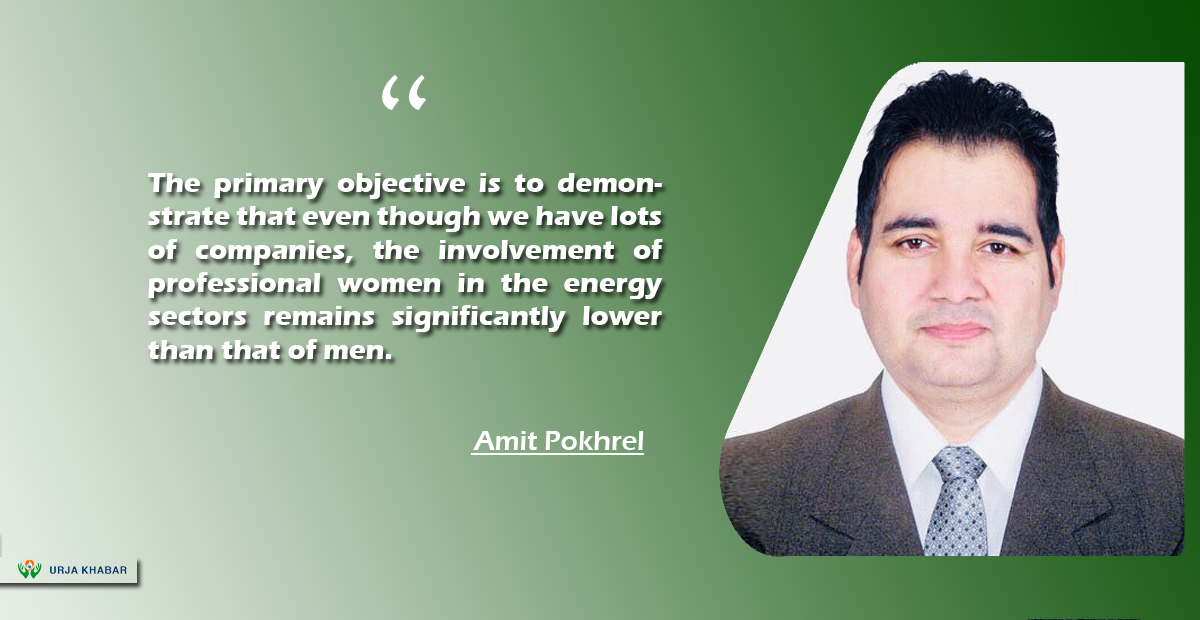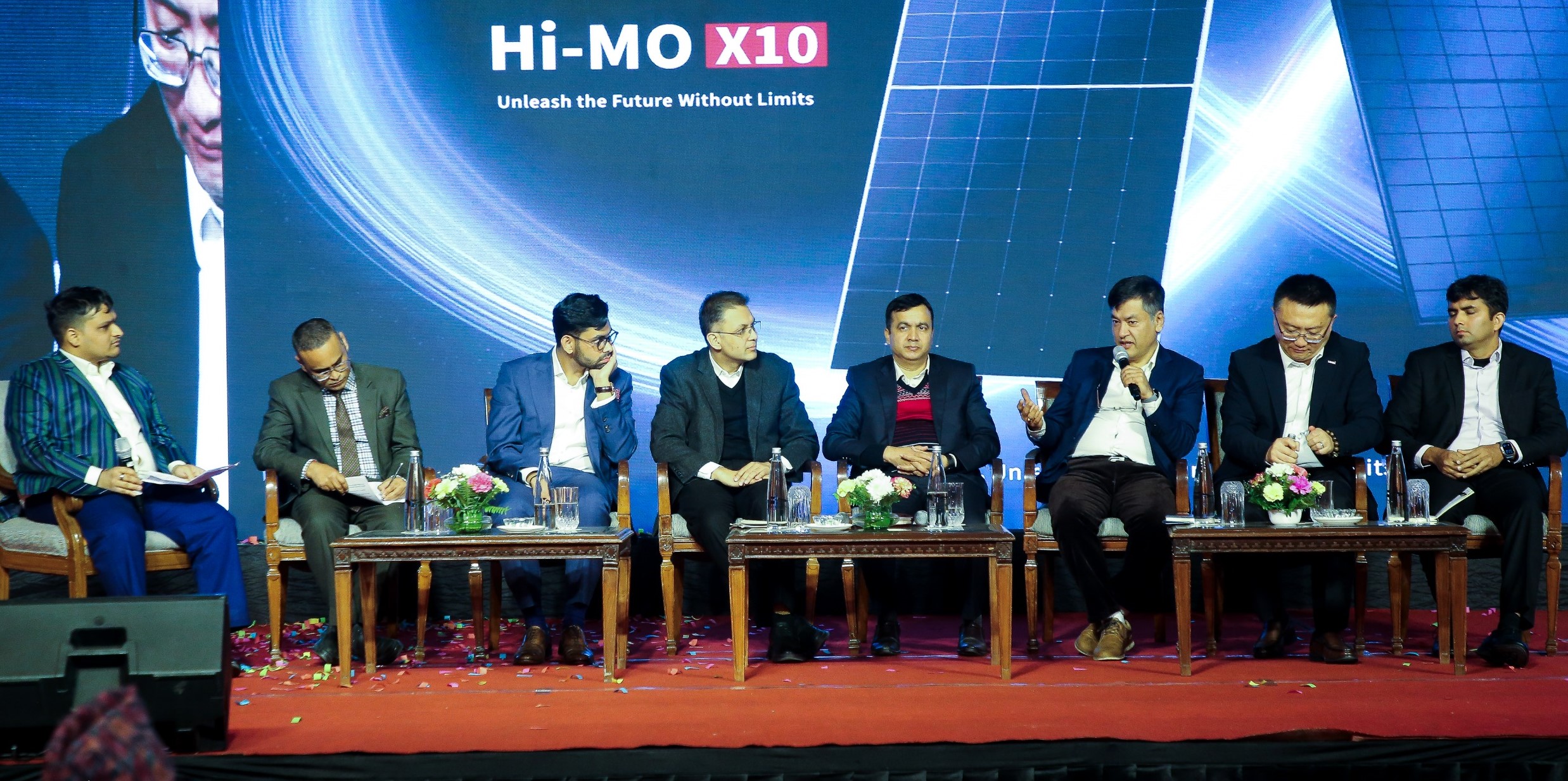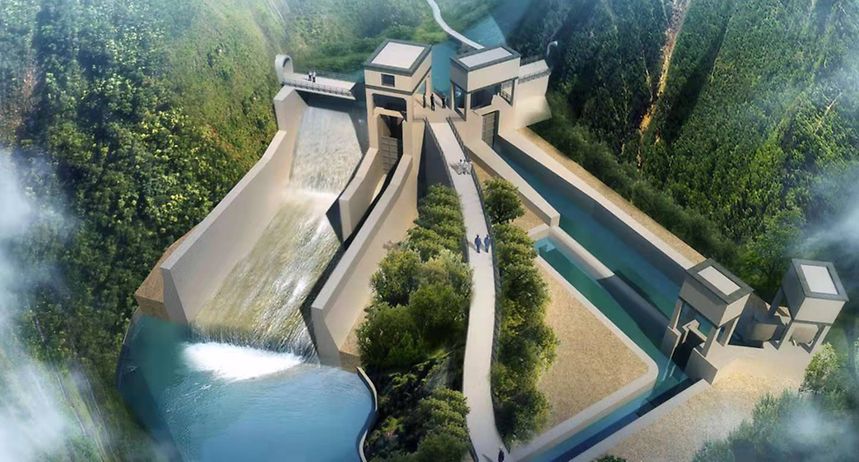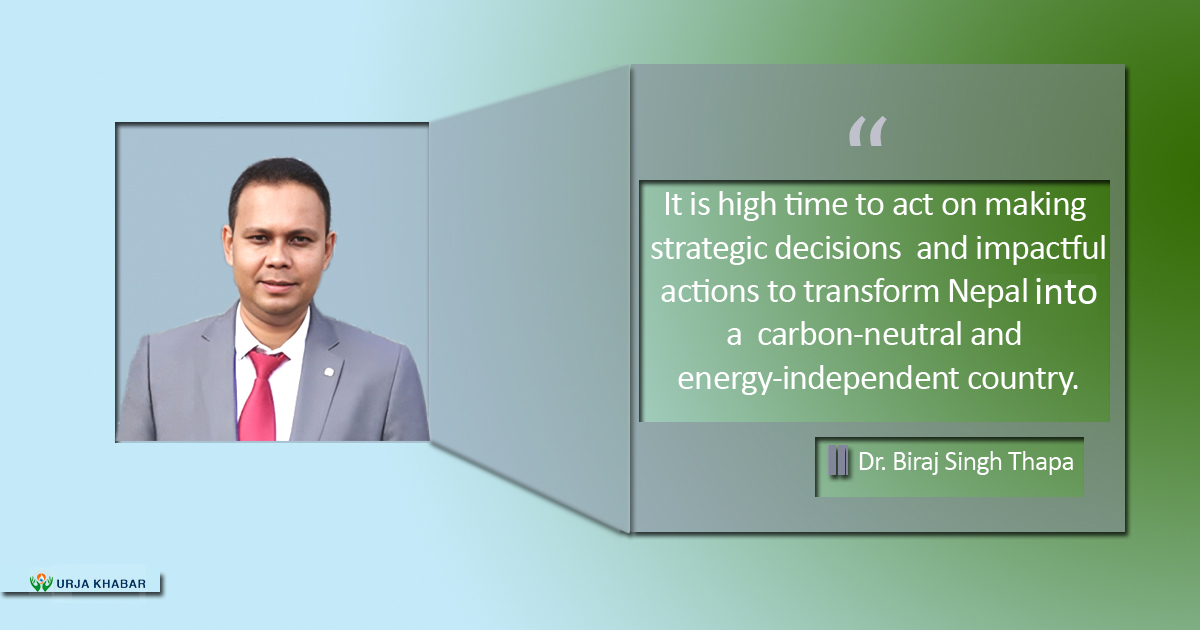Energy Update
Empowering Women in Energy Sectors

Kathmandu; Education is one of the most important means of empowering women with the knowledge, skills and self-confidence necessary to participate fully in the development process. The empowerment and autonomy of women and the improvement of their status is a highly important end in itself. Empowerment is the acquisition of control over one's life and equal participation in society. Women's empowerment is the process of gaining influence and equal opportunities to participate in personal, social, and economic activities, participating in all aspects of society on equal footing with men. It is also essential for achieving sustainable development.
The global movement for women's empowerment and the promotion of women's rights has become increasingly prominent in recent years, with days such as International Women's Empowerment Day gaining traction. Despite this progress, however, women and girls still face discrimination when it comes to employment and opportunities in all parts of the world. Women's empowerment is essential for the health and social growth of families, communities, and nations. When women are able to lead secure, fulfilling, and productive lives, their potential is limitless. Educated women can find meaningful employment and contribute to the development of their nation's economy, as well as contribute to sustainable development initiatives. It is the responsibility of all governments and societies to reflect on the fact that, despite the fact that women in most parts of the world receive less formal educational training than men, their own knowledge, skills and coping mechanisms are often overlooked. I believe that literacy of women is a key factor in enhancing health, nutrition and educational attainment in the family and in enabling women to make informed decisions in society.

In addition, the empowerment of women increases their capacity to make informed decisions at all levels of life. In some countries, experience has shown that development programme is most successful when taken in conjunction with the empowerment of women. In our multicultural environment, there are still disparities in education and support for women in Nepal, particularly in the energy development sector, such as hydroelectric power, solar energy, biofuel, biomass, wind energy, thermal, geothermal energy, green hydrogen and other forms of energy. I believe that women can do the job as men if the opportunity were available.
The National Statistics Office has released a detailed report on the National Census of Year 2078 BS, which indicates that the literacy rate among the population aged five and above in Nepal is 76.3%, with the male literacy rate being 83.6% and the female literacy rate being 69.4%. This indicates that there is still a need to work for the empowerment of women in order to create more educational opportunities, employment opportunities, and financial security. There are numerous areas in which women have been involved, such as engineering, law, architecture, public health, banking, accounting, finance, teaching, administrative support, parliament, and many other fields, through opportunities. However, in the field of clean energy development, the number of female participations is significantly lower than that of men. Consequently, we will begin to promote women's sense of worth, their capacity to make their own decisions, and their capacity to shape social progress for themselves and others.

Almost all countries, regardless of how progressive, have a history of mistreating women. To put it another way, women from all over the world have been defiant to achieve their current standing. While Western nations continue to make progress, the least-developed countries such as Nepal continue to lag behind in terms of women’s empowerment. This is due to a variety of factors such as the lack of encouragement, racial discrimination, harassment, dowry system, (which is still prevailing in the rural/urban and underprivileged sections of the Nepalese societies), and other forms continue to occur. As a result of the discrimination and lack of assistance and prospects, the majority of girls and women immigrated to the foreign countries with the expectation that they would be able to pursue their studies there and have a well-paying job that would enable them to lead a successful life.
Women account for 50% of the entire population. (Source: The Census 2078-2079 BS outcomes indicate that as of Mangsir 2079 BS, the country's population stands at 14,911,027 females and 14,253,551 males). The education and freedom situation are highly regressive in this context. Women are not allowed to pursue their education and are often married off at an early age. In some areas, men still pressure women as if it is their duty to labor for them indefinitely. They do not allow them to move freely or have a personal life. Consequently, women empowerment is an urgent issue. We must provide these women with the necessary tools to assert themselves and never be subjected to injustice. Girls' education should be compulsory so that they are not illiterate and cannot support themselves. Women should be given equal opportunities in all areas regardless of gender. Women empowerment can be achieved through both government-sponsored programme and at an individual level. At a personal level, women should be valued and given the opportunities as men. We should encourage and support women to pursue employment, further education and entrepreneurship, among other things.
Furthermore, women's empowerment and autonomy are essential for the successful implementation of transparent and accountable governance and for the promotion of sustainable development in all spheres of life. Power relations that impede women from leading meaningful lives exist at a variety of levels, from the most intimate to the most public. Establishing the objective of equal participation of men and women in decision-making is essential for achieving a balance that better reflects the makeup of society and is necessary for its proper functioning. Gender equality in decision-making has a powerful leverage effect, making it highly unlikely that a genuine integration of this dimension into government policy-making will be possible. The United Nations introduced the concept of women with the Women's Empowerment, a set of seven guiding principles that help the world for equality and gender discrimination, which has become a critical milestone in the advancement of the careers of women who wish to grow collectively in this community, city, country and world.
The Seven Principles are:
• Principle 1: Create high-level corporate leadership for gender equality
• Principle 2: Treat all people fairly at work, respecting and supporting non-discrimination and human rights
• Principle 3: Ensure the health, wellbeing and safety of all workers,
• Principle 4: Promote education, training and professional development for women
• Principle 5: Implement supply chain, marketing practices and enterprise development that empower women
• Principle 6: Champion equality through community initiatives and advocacy
• Principle 7: Measure and report publicly on progress to create gender equality
Governments should set up ways to make sure women are included and represented in the development process so they can voice their worries in all areas. They should also help girls and women reach their full potential through education and skills development, which is really important for getting rid of poverty and getting better health. As per the Gender Data Portal of the World Bank, In Nepal, the labor force participation rate among females is 28.6% and among males is 53.1% for 2022. Compared with labor force participation in the lower-middle income group, the gap between men and women is lower in Nepal.
Similarly, workers in vulnerable employment are the least likely to have formal work arrangements, social protection, and safety nets to guard against economic shocks; thus, they are more likely to fall into poverty. Vulnerable employment among women is 90% and among men is 61.7% in Nepal for 2021. The rate of vulnerable employment is lower for men but higher for women in Nepal compared to the average rate in South Asia. However, Women represented 13.9% of those employed in senior and middle management in 2017. The female share of employment in senior and middle management for Nepal falls in the lowest quintile of all countries for which there are data. Adult literacy in Nepal is lower among women than among men (2021). The gap in adult literacy between men and women, 17.7, is larger than the gap of the South Asia aggregate, 15.7. Adult literacy rate is the percentage of people ages 15 and above who can both read and write with understanding a short simple statement about their everyday life.
As per the Oxfam report on Nepalese women, still the poorest and most marginalized will continue to be excluded from progress. To build a more equal country that leaves nobody behind, Nepal must act now to put the right policies in place, and enable citizens and social movements to advocate for progressive change and hold decision makers to account. As from the voice of women, it shows that there has not been any study carried out regarding the pay scale and the opportunities for women anywhere and any places neither by any of the leaders and not by the policy makers but instead stunts were observed in every province. The advocacy for women can be seen but not much felt which will enable progressive change to bring them together.
As per the statistics information in Nepal, the technical and economically feasible hydropower potential of Nepal has been estimated at 83,000 and 42,000 megawatts (MW), respectively. It presents an opportunity not only to provide a significant source of clean energy for all but also to bridge domestic economic disparities which will help to generate income sources to the deployed human resources.
I would like to draw attention of women in the workplace. I have worked on a number of projects, such as the Upper Tamakoshi 456 MW Hydroelectric Project, where I was a Contract's Manager from Andritz Hydro GmbH. I conducted an analysis of project management issues to determine the presence of women in the project. As an engineering staff, I found that there were a countable female staff responsible for kitchen and administrative tasks, with a female presence of no more than 3% in comparison to the overall staff at the project sites. This highlights the fact that in all other development projects, the number of qualified women is significantly lower than that of men. While there may be a variety of reasons for this, the implementation of the policy by the prospective employer would be beneficial to the women and would encourage more women to pursue a career who’s having the appropriate skills and competencies.
Just to link, currently, there are a total of 124 projects in progress in Nepal, and approximately 244 projects have been granted construction licenses. Additionally, there are projects that have been granted a survey license for project study and development and currently, there are 48 listed companies in the Nepalese Stock Exchange (NEPSE). The primary objective is to demonstrate that even though we have lots of companies, the involvement of professional women in the energy sectors remains significantly lower than that of men. Women may be present in engineering firms, architecture firms and computer firms, but their involvement in direct development is lower than that of men in both public and private sector organizations.
Nepal produces a significant number of graduates each year from the fields of Civil Engineering, Electrical Engineering, Mechanical Engineering, Geology, Geotechnics, Environment, Geophysical Engineering, Surveying and other technical fields that are capable of achieving their career goals. However, these female professionals were not seen by the organizations in the areas where they could learn and develop their skills. The employer did not see it as convenient to support their careers in the fields of Hydropower, or all energy sectors, due to lack of proper opportunities, or the perception that women are not required in the energy development sectors, or it would be unwise to suggest that these professionals are the ‘key’ to their success, and the ‘gateway’ to their establishment in energy & construction industries, so that they can also motivate others to follow their footstep towards development.
To generalized, the status of the licenses can be found from the table (Source: DOED)

Similarly, a survey was carried out to determine the position of professional women in the context of development. The survey lasted for approximately 15 days and was conducted through interviews with 200 women in different parts of the Valley region. The purpose of the survey was only to identify opportunities for professional women. The majority of respondents claimed that I was wasting their time because the government was unwilling to launch their efforts and put the policy in place for them. On the other hand, some respondents positively answered the questions posed to them and expressed their support for a wider programme. The following are the results of the survey.


The Gender Gap Index 2022 demonstrates that Nepal has made progress in terms of creating accessible opportunities, yet women remain the most disadvantaged segment of the population. A study has revealed that Nepali women, despite their economic prosperity, still face more obstacles to economic opportunity than women in other parts of the world. This is largely due to deeply ingrained cultural norms, particularly those governing household resources. To address the gap, the progressive ideas can be taken in Nepal that can help to reduce gender inequality: enacting legislation to guarantee equal rights for women to participate in all development programs. Additionally, the economic dimension should be expanded and made more accessible for women through concerted efforts between government entities and civil society. Human capital and economic empowerment must be prioritized in order to foster agency and resilience.
It is also essential that all sectors of society in Nepal strive to eliminate all gender disparities and inequalities in terms of women's livelihoods and labour market participation. Employment with secure incomes has been demonstrated to contribute to women's empowerment and professional development, equipping them with the necessary competencies and knowledge to become competitive and self-assured decision-makers as well as educators. Furthermore, women are deprived of access to essential services, such as reliable electricity, clean drinking water, high-quality education, and access to affordable health care. In order to address these issues, it is necessary to develop sustainable and effective models to provide life-improving goods and services to women who require them most. Clean energy is the most cost-effective option for all communities, which will lead to a better quality of life for every person. Energy provides a technical, social and economic framework to take control of the energy future.
In my opinion, leadership and participation are important not just in the family but in society as a whole. Let's work together from the comforts of our homes to encourage all women to be part of the process of sustainable growth. Let's teach our society to empower all women who can do better and let's work together to inspire them. We think that educated and empowered women and girls are the ones who bring about change. When they're empowered, they can talk for their rights and for their communities too.
“If others have the #PowerToChange, and so do you!”
Reference
1. Census Nepal 2021 (cbs.gov.np)
2. World Bank Gender Data Portal
3. UN Women | Timeline: Women of the world, unite!
4. Gender equality and women’s rights | OHCHR
5. Women Education: Its Meaning and Importance
6. Importance of Women's Education | Leverage Edu
7. Global Gender Gap Report 2023 | World Economic Forum (weforum.org)
8. Department of Electricity Development (doed.gov.np)
Mr. Pokhrel is Professional Engineer and Project & Contract Management Expert (This Article is dedicated to all women of this Universe whose contribution has brought positive changes in the society)
Conversation
- Info. Dept. Reg. No. : 254/073/74
- Telephone : +977-1-5321303
- Email : [email protected]














.jpg)